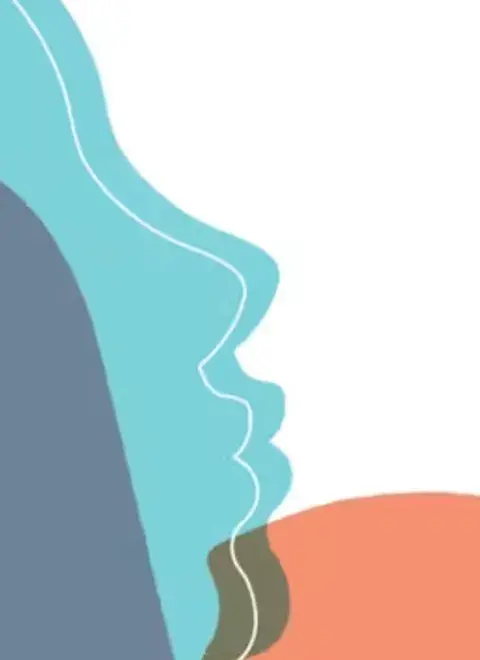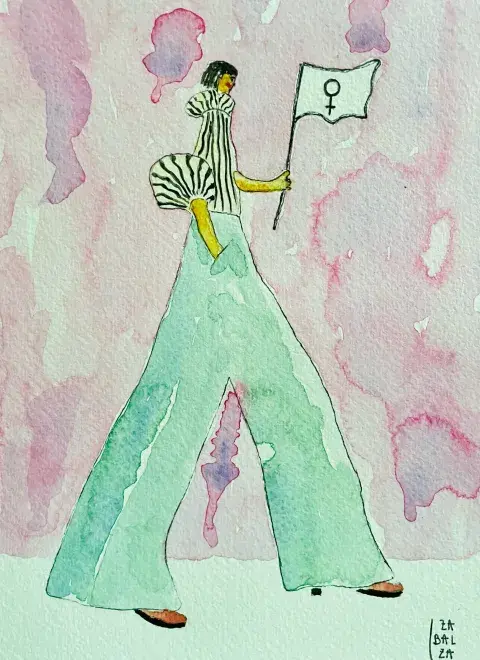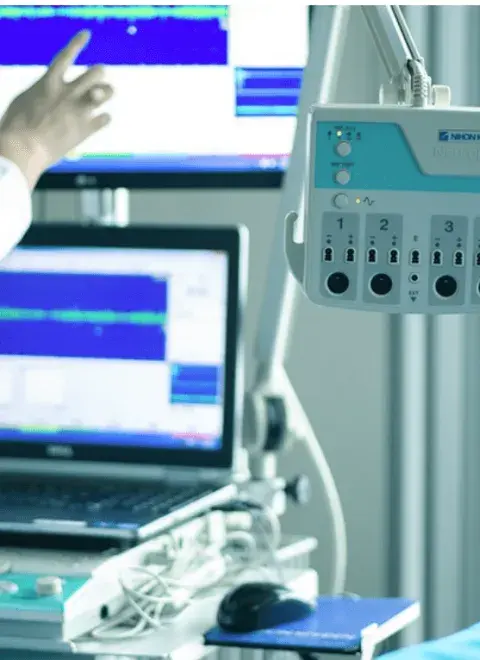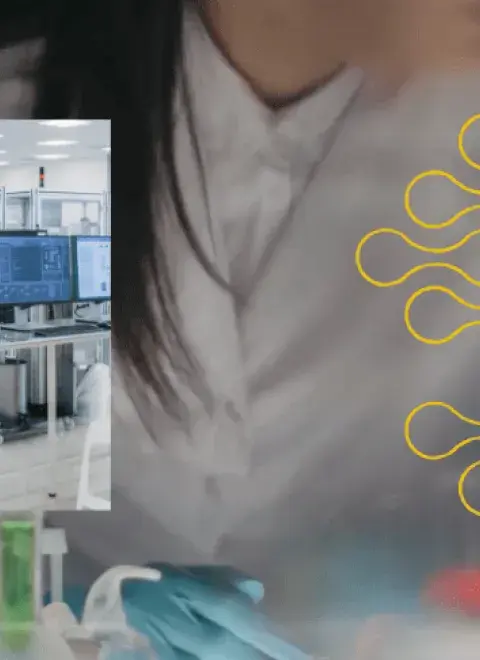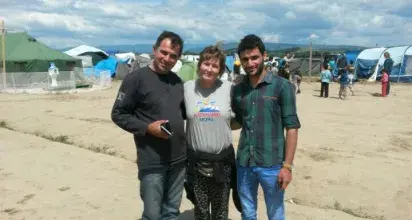
Bekas Hussein, Master in Marine Renewable Energies at the UPV/EHU after his stay in Idomeni refugee camp
Ten years have passed since war broke out in Syria, and the scale of the impact keeps on growing with no sign of peace in the near future. According to UN figures, approximately more than 500,000 people have been killed or are unaccounted for, while 12 million people, more than half of the 22 million Syrians living in the country before the conflict began in March 2011, have been forced to flee their homes. Nearly half of these displaced people are registered as refugees abroad, in what has become one of the largest refugee exoduses in recent history.
Bekas Hussein, a young Syrian Kurd, is one such person who had to flee his country in search of a new opportunity in Europe. At Easter 2016, during his stay in the Idomeni refugee camp (Greece), a simple twist of fate led him to meet Jordi Campàs, former Head of Collaborative Research at Euskampus Fundazioa and current Deputy Minister of Economy and European Funds of the Basque Government. Five years later, his dream of studying a master's degree related to his petroleum engineering studies has come true with the help of Euskampus Fundazioa. This is his story.
At the age of six, Bekas started working at his father's humble village supermarket at the same time as he was studying at school. Soon after, his father died, leaving a 40-year-old widow and eight orphaned children. His culture meant that, since he was the eldest sibling, eight-year-old Bekas became the head of the family and had to struggle very hard to support his family while continuing his studies.
The family's precarious situation meant that it could only afford to send Bekas to University, and he chose Petroleum Engineering, because it would ensure secure a good future for him and his family. Yet in 2011 the Syrian War broke out and his dream was cut short.
In 2014, at the age of 23, after finishing his university studies in the middle of the conflict, he decided to move with his family to Turkey, where he worked on building sites, working endless 14-hour days. In his quest for a better life, he decided to come to Europe with his mother and one of his sisters, and had to cross the Aegean Sea several times in a wooden boat. The eighth time, they made it.
Yet when they reached Greece, Europe's borders were closed and they were trapped with 15,000 other refugees in the Idomeni camp. This is where Bekas Hussein, who acted as an interpreter for the refugees' medical consultations, met Jordi Campàs, who was working as a volunteer in the camp. Bekas told Jordi about his dream of studying an engineering-related master's degree. And the dream came true.
Inter-University Master's Degree
Years later, a Euskampus Foundation scholarship programme has allowed Bekas Hussein to study the Erasmus Mundus master's degree in Marine Renewable Energies (REM), an inter-university master's degree led by the University of the Basque Country (UPV/EHU) together with three other European universities:the University of Strathclyde (Scotland), the Norwegian University of Science and Technology (Norway) and the École Centrale de Nantes (France).
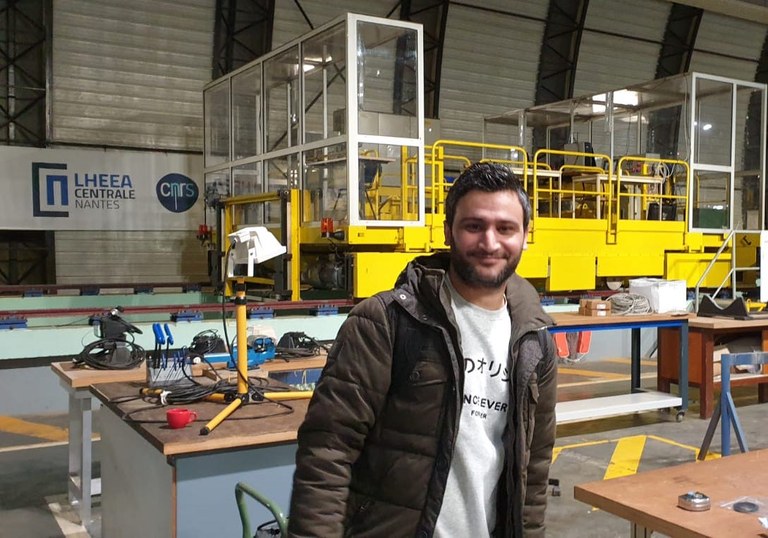
Bekas Hussain at the University of Nantes, France.
Igor Campillo, director of Euskampus, says "In 2016, following the experience of Jordi Campás - then head of the Poles of Knowledge Community at Euskampus - in the Greek refugee camp of Idomeni, and in the context of our Strategic Plan (2016-2020), we decided to include a pilot project in the form of a helpline for refugees who wanted to receive higher education here and thus get access to a better future."
That is why Bekas Hussein's case was considered as the spearhead of this financial aid scheme, which has enabled him to enrol on one of the University of the Basque Country's most prestigious master's degree courses.
As Campillo points out: "The idea was to offer a scholarship to people who have been displaced due to conflict, persecution or other serious human rights violations or deprivations, either inside or outside their country of origin, such as refugees, stateless people, asylum seekers, etc."
In this regard, what at first was a pilot project has taken root since, as Campillo comments, "we are going to include a financial aid scheme periodically linked to international masters' degrees at the UPV/EHU for people from vulnerable groups".
Bekas has seen his dream come true with the master's degree that he has studied in different European regions such as Euskadi, Strathclyde (Scotland) and Nantes (France), and which has given him the chance to gain further knowledge, professional skills and experience in the offshore marine energy sector.
Bekas is currently completing his Master's Thesis at Tecnalia, a Research and Technological Development Centre that is part of BRTA (Basque Research and Technology Alliance). Yet this master's degree is not the end of his dream; he wants his future to continue in a Basque Country technology centre, and also to bring his family, which is scattered in different parts of Europe, together again in Bilbao.
Bekas is grateful for the opportunity and support that Euskampus has given him, which, in his opinion, "has helped me to overcome many difficulties, not only on a professional level, but also on a personal level, and they have become like a family to me".
For his part, the director of Euskampus concludes that "despite some setbacks, such as the situation that led to him suspending his studies for a season, for us it has been a very rewarding experience from the very beginning and we believe it has been very enriching for Bekas".

Subscribe to Newskampus
And get our latest news in your inbox.
